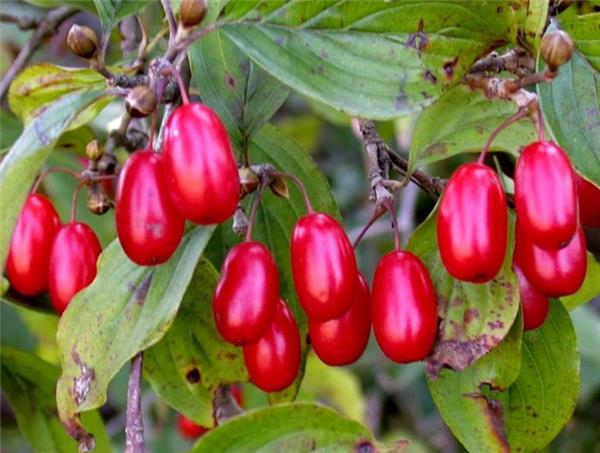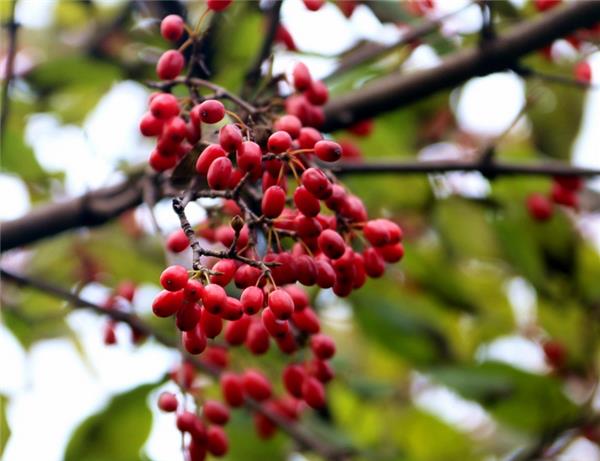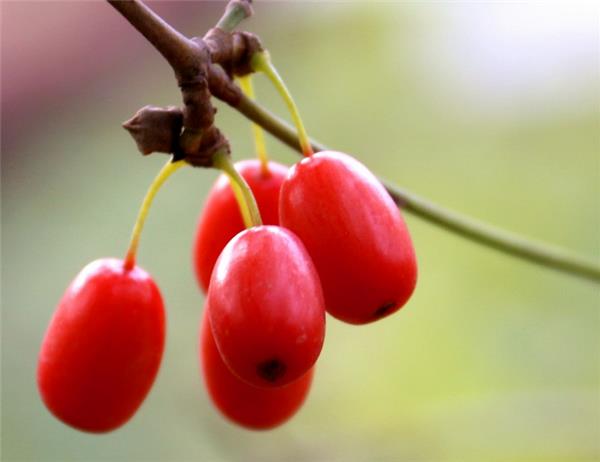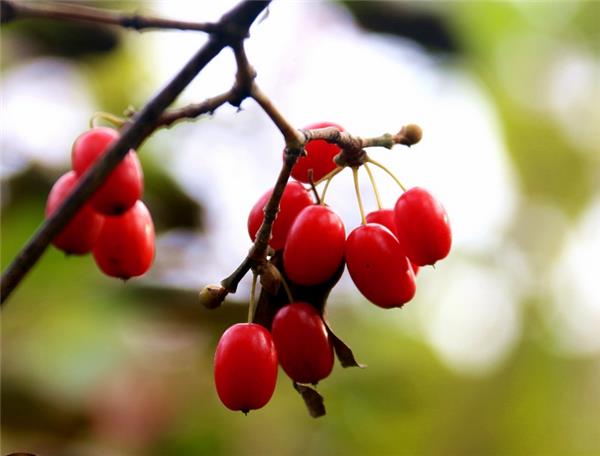Efficacy, function and Edible method of Cornus officinalis
The fruit of Cornus officinalis contains vitamin A, Cornus officinalis glycosides, saponins, tannins, ursolic acid, Gallic acid, malic acid, tartaric acid. Today we would like to introduce the efficacy and function of Cornus officinalis and how to eat it.

Efficacy and function of Cornus officinalis
1. Anti-hemorrhagic shock effect
Cornus officinalis was prepared into intravenous injection by boiling and alcohol precipitation, which was injected intravenously into rabbits with hemorrhagic shock. as a result, the blood pressure of the experimental group increased rapidly. Some experimental studies have shown that intravenous injection of Cornus officinalis injection can rapidly and obviously increase hypertension and has definite significance for clinical rescue.
2. Inhibition of platelet aggregation
Cornus officinalis injection can also inhibit the formation of blood tie in the bypass circulation of common carotid artery and external jugular vein in rats. Inhibition of platelet aggregation and anti-thrombosis has certain significance in alleviating the formation of DIC and is beneficial to the treatment of shock.
3. Effect on cardiac function.
Intravenous drip of Cornus officinalis injection to cats can enhance myocardial contractility, improve cardiac efficiency, dilate peripheral blood vessels, significantly enhance cardiac pumping function and increase blood pressure.

4. The effect of lowering blood supply
The alcohol extract of Cornus officinalis has obvious hypoglycemic effect not only on alloxan and epinephrine-induced diabetic rats, but also on streptozotocin-induced diabetic rats.
5. Antibacterial activity.
Cornus officinalis fruit decoction can inhibit the growth of Staphylococcus aureus and Shigella dysenteriae in vitro. The water extract has different inhibitory effects on 10 kinds of fungi such as Trichophyton corydalis in the test tube. A black-red sour liquid was obtained from fresh pulp, and the experiment showed that it had inhibitory effect on typhoid bacillus and dysentery bacilli.

6. the effect on the immune system
The total glycosides of Cornus officinalis could inhibit lymphoid transformation, LAK cell induction and interleukin-2 production. The total glycosides of Cornus officinalis could inhibit the mixed lymphocyte reaction of mice and human in vitro, inhibit the mutagenesis and proliferation of cytotoxic T cells. There were significant differences in the responses of Cornus officinalis glycosides and cyclosporine A to TPA-stimulated lymphocyte proliferation, PHA or PWM combined with TPA stimulation, and the proliferation of lymphocytes and CTL cells. In addition, both of them had synergistic inhibitory effect on lymphoid transformation, MIR and CTL proliferation.
7. Other functions
Cornus officinalis can kill ascites cancer cells in vitro. It has the effect of preventing experimental liver damage. It can increase the leukopenia caused by chemotherapy and radiotherapy.

Edible method of Cornus officinalis
1. Cornus officinalis and peach black chicken soup
Efficacy: the traditional Chinese medicine Cornus officinalis is lukewarm, sour and astringent, which can warm and tonify the liver and kidney and collect essence and blood. Traditional Chinese medicine thinks that its tonifying power is sufficient, but the medicine is mild, and it can circulate blood, so it is often used in medicinal diet soup. Peach has a warm taste and is famous for nourishing dried fruit. Traditional Chinese medicine believes that it has the effects of tonifying kidney and essence, warming lung and relieving cough, tonifying qi and nourishing blood, tonifying brain and wisdom, tonifying liver and black hair. Black chicken is a valuable dietotherapy rare bird, and its nutritional value is much higher than that of ordinary chicken. Combined into soup, it has the effect of tonifying kidney and nourishing blood, astringent seminal contraction and urine, which is very suitable for tonifying nowadays.
Materials: 15 grams of Cornus officinalis, 50 grams of peach meat, 4 red dates, 1 light black chicken, 3 slices of ginger.
Practice: wash each ingredient, enucleate red jujube, wash light black chicken, remove internal organs and buttocks. Then put it in a tile pot with red dates, add 2500 milliliters of water (about 10 bowls of water), boil over martial fire and simmer for 2 hours, then add the right amount of salt.
2. Dogwood Cistanche mutton soup
Efficacy: it is suitable for hand and foot ice, sore waist and knees, frequent urination, constipation and other symptoms.
Materials: 600 grams of mutton, 20 grams of dogwood, 20 grams of Cistanche deserticola, 20 grams of longan meat.
Practice: cut the mutton into thin slices and boil it in boiling water for 10 minutes, remove it and rinse it with clean water, put it in a tile pot and boil until the water is boiling, add dogwood, Cistanche, longan meat and sliced ginger, continue to boil over high heat, turn to medium heat and cook for 3 hours, add various condiments according to your taste and take it.
3. Cornus officinalis Yinjin Zhixue decoction
Efficacy: treat sympathetic bleeding of the woman.
Composition: ginseng 15 grams Atractylodes macrocephala 30 grams (soil fried) Poria cocos 9 grams (peeling) 30 grams (nine steamed) Cornus officinalis 15 grams (steaming) black ginger 3 grams yellow cypress 1.5 grams mustard ear 9 grams plantain seed 9 grams (wine stir-frying)
Usage: fried clothes in water.
Source: Fu Qingzhu Gynecology Volume.
Related
- Wuhan Hospital Iron Tree Blooming Result Was Instantly Frightened by the Gardener Master
- Which variety of camellia is the most fragrant and best? Which one do you like best?
- What is the small blue coat, the breeding methods and matters needing attention of the succulent plant
- Dormancy time and maintenance management of succulent plants during dormancy
- Minas succulent how to raise, Minas succulent plant pictures
- What are the varieties of winter succulent plants
- How to raise succulent plants in twelve rolls? let's take a look at some experience of breeding twelve rolls.
- Attention should be paid to water control for succulent plants during dormant period (winter and summer)
- Watering experience of twelve rolls of succulent plants
- Techniques for fertilizing succulent plants. An article will let you know how to fertilize succulent plants.



